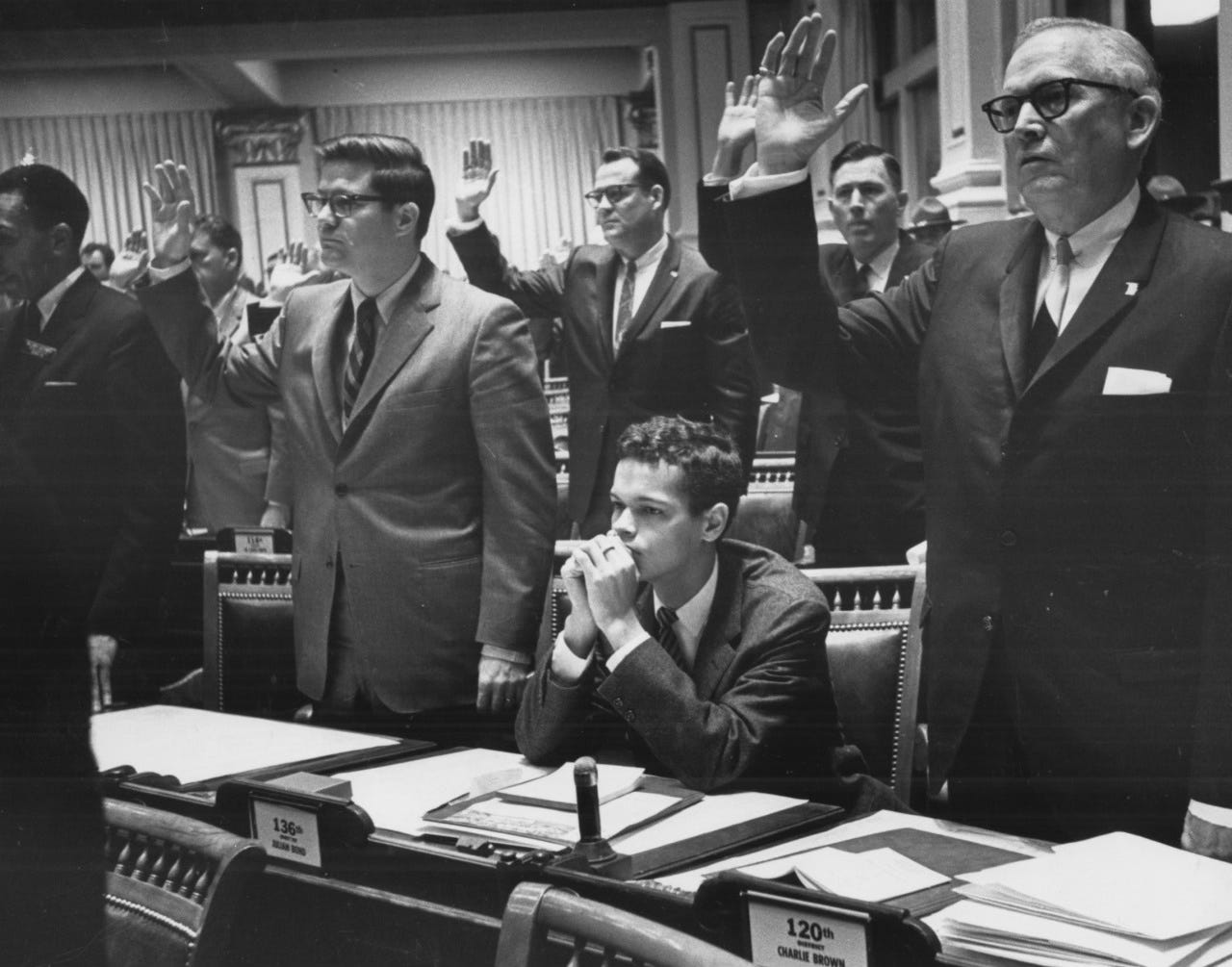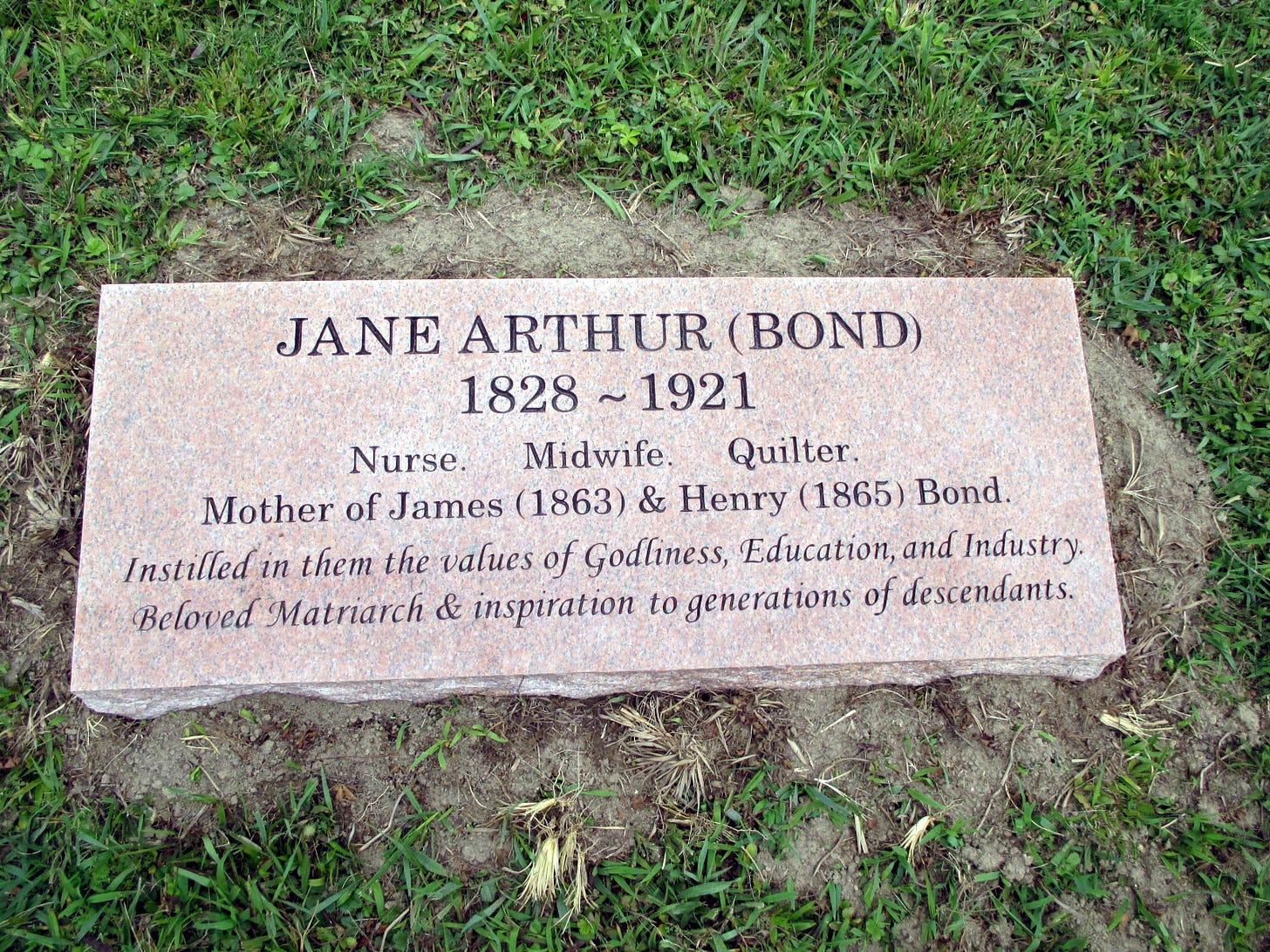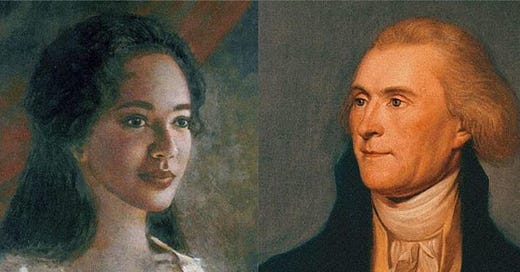The Cruel Redeemer and the 'Slave Mistress' Great Grandmother of Julian Bond
It's a history many folks would like to forget, but what better time than Juneteenth to remember one of the stories that makes America what it is.
Maybe the current White House crusade against D.E.I. will eventually succeed in obliterating the story of Civil Rights activist Julian Bond and his enslaved great grandmother from any truthful account of American history. But until it manages to get rid of the Bill of Rights, it can’t stop me from talking about it as the nation celebrates its fifth Juneteenth National Holiday of the 21st century.
Ironically, the truth of Bond’s story begins in a work of fact-based fiction—“The Cruel Redeemer Lazarus Morell,” by Argentine writer Jorge Luis Borges. The first sentence of that story is long by today’s standards but can be summarized like this:
In 1517, a Dominican missionary1 felt sorry for indigenous Indians forced to work in Central American gold mines. So he asked the Holy Roman Emperor to transport "Negroes” to the Caribbean so they could do the work. As a result of the monk’s “philanthropy,” history has inherited the blues music of W.C. Handy, the mythological stature of Abraham Lincoln, the half million killed in the American Civil War, the gracefulness of certain elegant young ladies—and the cruel redeemer known as Lazarus Morell. 2
To that list, I would add the music of John Coltrane, the courage of Rosa Parks, the assassination of Martin Luther King, Jr., and the story of Julian Bond and his enslaved great grandmother.
In January of 1966, Julian Bond was elected to the Georgia State Legislature. But when he tried to take his seat, they refused to swear him in because of his vocal opposition to the Vietnam War.

Julian Bond was 26 when that happened. A co-founder of the Student Nonviolent Coordinating Committee (SNCC), he was a key player in the Civil Rights Movement. Often risking his life in the rural Deep South in order to register Black sharecroppers for the vote. He’d also marched with Dr. Martin Luther King, Jr., along paths similarly fraught with danger.
Bond was from a prominent African American family. His mother was a university librarian. His father was a college professor who became president of Fort Valley State College and the first Black president of Lincoln University in Pennsylvania. Guests at the family home often included luminaries like W.E.B. DuBois, Paul Robeson, and Albert Einstein.
Although I served as a page in the state legislature during the time Julian Bond was denied his seat, I did not meet him personally until I went to work at a local radio station as a cub reporter and daily talk show host. It was the early 1970s, and by this time, the Supreme Court had ruled that the state legislature was wrong to deny him his seat. A charismatic figure, he was in the early stages of what became a 20-year tenure in the state assembly and senate.
It should not matter that Julian Bond was “light-skinned,” but unfortunately the color of his skin and the texture of his hair did seem to play a role in how he was regarded by both white and Black Georgians.
During one of his appearances at the call-in talk-radio station where I worked, he received this question from a white male caller:
“Mr. Bond, do you have any white blood in you?”
“Well if I do,” Bond answered, “it’s not because my great grandmother raped the white slave holder who held her in bondage.”
Ten years ago, when Julian Bond died at the age of 75, the New York Times published an obituary that referred to his great grandmother Jane Bond as “the slave mistress of a Kentucky farmer.”
Several readers and numerous online publications complained about that term, and the Times apologized a few days later. But not before noting that Julian Bond himself had used the term mistress to describe his great grandmother in a 2013 article in the Atlanta Journal Constitution.
My grandfather and his mother were property, like a horse or a chair. As a young girl she’d been given away as a wedding present to a new bride. And when that bride became pregnant, her husband — that’s my great grandmother’s owner and master — exercised his right to take his wife’s slave as his mistress. That union produced two children, one of them my grandfather.
—Julian Bond, Atlanta Journal Constitution, August 28, 2013.
Probably the biggest objection to the New York Times’s use of the term two years later was that a mistress usually has some agency. She participates in the sexual union by choice. A slave does not.
In its apology, the Times failed to draw the distinction noted by Michigan professor Martha Jones on the History News Network.
Julian Bond took care when explaining his great-grandmother's young life. He avoided the illusion of romance, employing the euphemism mistress while letting the underlying sexual violence show through.
“When telling the history of slavery,” Professor Jones said, “we must admit its brutal complexity. The term slave mistress leaves too much unsaid, blanketing over the assault and coercion in many enslaved women's lives.
Certainly, there was a great deal more to Jane Bond than the forced enslavement that required her to satisfy the sexual needs of slaveholder Preston Bond during his wife’s pregnancies. 3
After Emancipation, Juneteenth, and the 13th Amendment, she raised the two sons born to her by the slaveholder, one of whom Dr. James Bond was Julian Bond’s grandfather. Born into slavery like his brother Horace and mother Jane, Dr. Bond remembered her as a heroic figure. She was a strong woman, he said, who educated and inspired both of her sons to be the best possible in their future lives and careers.
She was their encouragement, teaching them to behave in an honest and respectful manner. To Dr. Bond, she was a symbol of “…the mute, glorious, yet tragic destiny of the Negro slave woman, bowed indeed, beneath the weight of centuries, yet possessed of a spark of courage and hope that transfigured her life and shed a radiance upon the life of those with whom she came in contact.”

History has recorded many other examples of what happened to Jane Bond. Best known perhaps is the story of Sally Hemings. Like Jane Bond, she was still a teenager (only 14) when Founding Father Thomas Jefferson began his years-long sexual relationship with her. That union produced six children.
Like Jane Bond, young Sally Hemings had no agency or choice either. For centuries, the Jefferson heirs refused to acknowledge the third American president was the father of her children, but a 1998 DNA study, forced them to concede the truth.
You can find that same spirit of denial today in those who want to eradicate uncomfortable truths from American history. They use political muscle to remove books they don’t like from libraries. To criminalize teachers who talk about it in their classrooms. At the federal level, they use the bogus anti-D.E.I campaign to remove qualified African Americans from their jobs, threatening universities and private companies who do not fall in line with these discriminatory policies.
What they fail to understand is that African American history is also American history. That we cannot grow as a nation if we don’t recognize our complicated past — and face it as Germany and Japan have done in the years since World War II. The truth of that past cannot be shouted down or legislated out of existence.
If our past is filled with women who were raped by men like Preston Bond and Thomas Jefferson, it also includes women like Jane Bond who survived those legalized assaults on their bodies, producing remarkable heirs whose own lives reflect their courage.
What better time than this Juneteenth National Holiday to remember these things. And celebrate the truth that makes us free.
©2025 Andrew Jazprose Hill/All rights reserved.
Thanks for reading/listening. Please hit the like, share, and/or comment buttons to help others find my work.
An actual historical figure, his name was Fray Bartolome de las Casas, who eventually became known as the Protector of the Indians and the Father of the TransAtlantic Slave Trade.
Lazarus Morell is a despicable character who pretends to help the enslaved escape only to betray them by selling them again to a different slave holder.
Preston Bond became a Methodist Minister at the age of 19. With his white wife Belinda Arthur, he fathered 12 children, as well as the two boys James and Horace with Jane Bond. That’s 14 children in all.





"African American history is also American history." Yes.
For any one to grow as an individual we need to recognize what has happened to us.
As you point out, so too for a nation.
And as this current history unfolds, to ask why.
But so many would wish to believe that there was a romantic element to those relationships between owner and slave - it paints a much prettier picture. Otherwise, we have to be ashamed of our own racial history. Alternatively, we can follow our current president and just make sure that no people of color are allowed to be visible. Thank you for sharing this story of a remarkable woman's life.